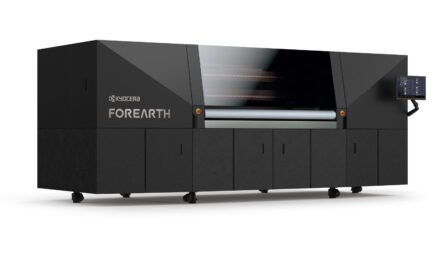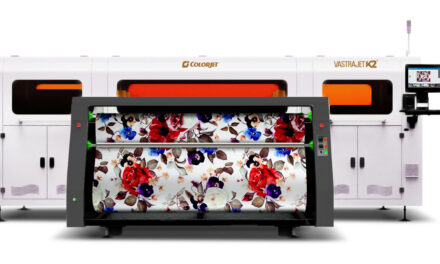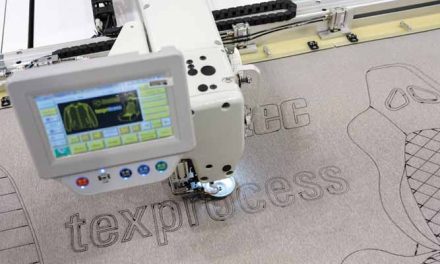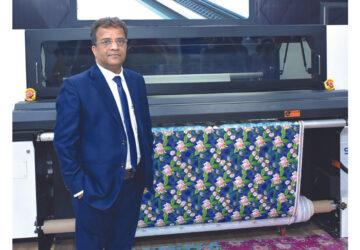The digital transformation is revolutionizing countless areas of our lives, and the consumption of textile products is no exception. Daily, we can see how the boom of e-commerce has boosted new purchasing behaviours that require new sales and organisational models.
Brands and retailers react to the demand and take advantage of these changes, making full use of the possibilities that the new technologies offer for the development of their business. It is time for the digital revolution to go beyond the sales point, reach the production centers and translate into new productive models that undertake a commitment to sustainability.

It is time to take leap from analog to digital
Up until now, the garment finishing industry has been marked by its intensive use of hand labour and natural resources, mainly water. Traditionally, the finishing process of each pair of jeans has been done manually, with its subsequent lack of exact reproducibility and through means that often put the workers’ health at risk.
The environment has also not been spared the impact of producing tonne of garments (5 bn jeans are produced globally every year). Taking into account that a single pair of jeans uses, on average, 70L of water and 150g of chemical products, textile production generates an environmental footprint that is impossible to ignore. Currently, the fashion industry has the dubious honor of being considered the second most pollutant industry in the world and, since the same processes will always garner the same results, it is time to change.
Jeanologia drives and leads this change, developing disruptive technologies for the garment finishing industry, able to introduce a new operating model that will bring the jeans industry to the digital era, by reducing the environmental impact and optimizing the time to market.
The digital revolution is here
Today, it is entirely possible to speak about the digital transformation of the finishing industry as a reality. Using a combination of Jeanologia’s technologies, laser, eco and e-Flow, it is now possible to produce jeans in a sustainable way at an industrial scale, automating and simplifying processes through the use of eco-efficient technologies in the garment finishing process.
Separately, each of the technologies is a powerful tool that allows us to give an answer to some of the most significant problems of textile industry, but it is when we join them that we achieve the total revolution of the manufacturing process. A transformation that breaks the surface to reach the heart of the issue and give an answer to the challenges of adapting garment finishing to the new digital era, where development and sustainability go hand in hand.
A new concept of Laundry 5.0 is born, where we attain authentic products of the best quality, in a sustainable way and without increasing production costs. In this new cost neutral model, what matters is not only the product itself, but also the way it has been made. That is part of the DNA of the product. Sustainability then becomes an additional decision factor besides the look and price.
However, to achieve the full integration of the jeans industry into the digital era, it is not enough to consider the implementation of disruptive technologies, although they certainly play a key role in the improvement of operating models.
A holistic approach becomes a necessity in road to sustainability
In this approach, people have a crucial role to play. Technologies and software displace water and chemicals as the main resources of the garment finishing process, and the need of new professional profiles able to adapt to the new digital environment appears. From design to production, the new professionals work to create spectacular designs in the most sustainable and eco-efficient way through the use of technology.
For this, a change of mindset that complements the advances of technology is essential when it comes to making the most of the opportunities that appear during any process of change. And the opportunities the digital transformation offers are many. Savings of an 80 per cent of water and 50 per cent on chemical products, with exact reproducibility and a 30 per cent reduction of processing times. Cost neutral, more sustainable collections, with shorter time to market, thanks to the connectivity technology provides. It is not only a possibility, but already a reality.
Connectivity enables everyone in the supply chain to work together no matter their geographical location. Designers and manufacturing centers work under the same standards and within the same digital environment, making communication and the scalability of processes an easier task. This facilitates the postponement of decision making and reduces the time to market so that the always changing market demands can be addressed at top speed. The barriers between creativity and technology, fashionistas and technocrats, designers and engineers have already been torn down. Join the digital transformation, with Jeanologia as your technological partner, and step into the future.
Source: Jeanologia



















